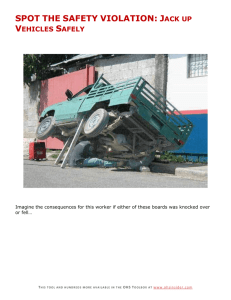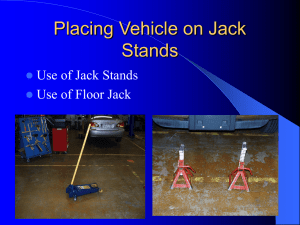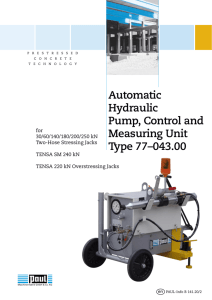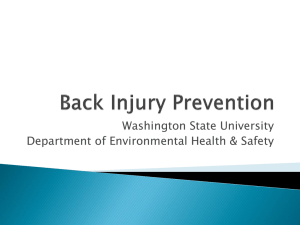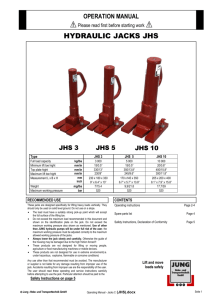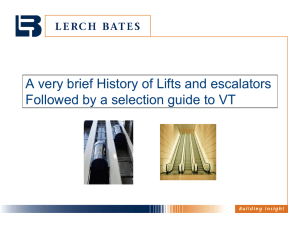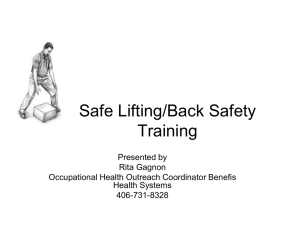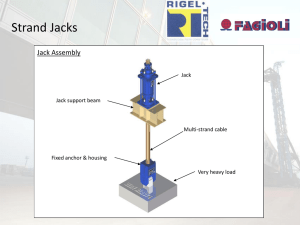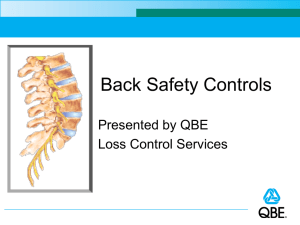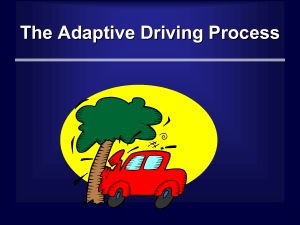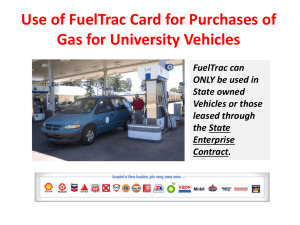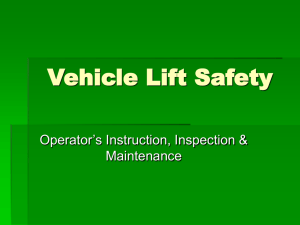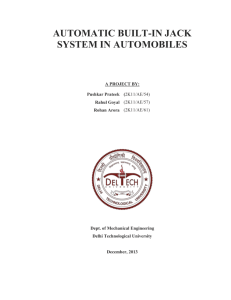How to Lift a Vehicle
advertisement
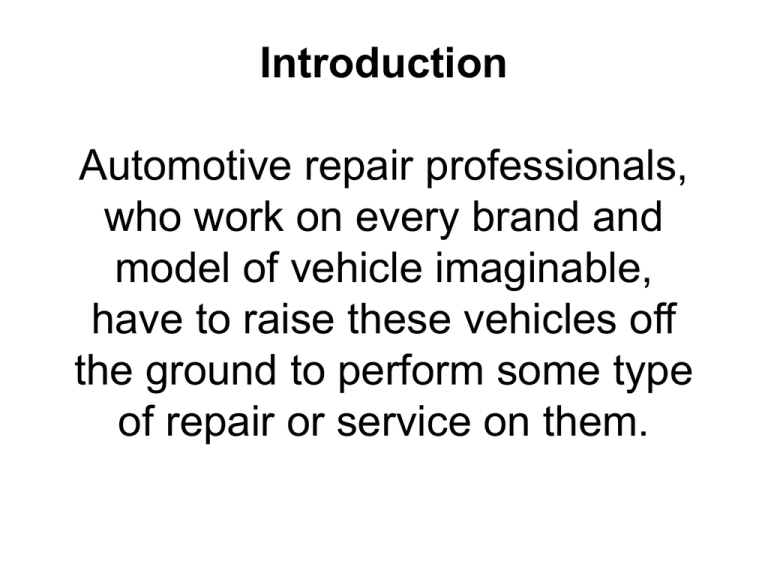
Introduction Automotive repair professionals, who work on every brand and model of vehicle imaginable, have to raise these vehicles off the ground to perform some type of repair or service on them. • for example, sometimes motors need to be lifted out or the vehicle raised and the motor dropped. • In some respects, these technicians are working much like a tightrope walker without a net; it only takes one slip, just one mistake for them to be in big trouble! 4 Post lift in a Body shop • How to Lift a Vehicle • • There are several ways a vehicle can be raised off of the ground, but the two most common methods are: • Full car lifts • Floor jacks • When you think about the tremendous weight of a motor vehicle, it makes sense to use every safety precaution available when lifting it off the ground to work on it. The best lift is the kind that lifts the full weight of the car and one that has a second form of slip prevention as a double safeguard. • Over the last century, hundreds of people have died or been severely injured from improperly lifting or securing vehicles during the repair process. • What's even more unfortunate is that it's likely many of these deaths and injuries could have been avoided if the individuals would have had proper training on the equipment they were using • Not only are there all kinds of ways to hurt yourself using lifts, there are all kinds of ways to damage the vehicle as well. • Clearly, training is critical to both employee safety and job security. No service manager, shop manager or owner wants employees to get hurt; nor do they want a vehicle to be damaged because of poor training issues. • Neglecting proper lift and jack safety is a sure way to either be seriously injured or dismissed from a job. Neither is a very inviting prospect! Know Your Equipment • The basic safety recommendations and weight ratings can be found in writing on most equipment. • If the labeling is not legible or has become dirty over time, most manufacturers are happy to provide new labels at no cost • Most lift providers have safety information on specific tools and equipment on their Web site as wel Specific Information for Your Area Summary • The rules of safety for using equipment to lift vehicles are clear-cut: • Don't be afraid to ask for help if you don't know where to place a jack on a vehicle • If you ever have any trouble lifting a car or have any questions about techniques or safety, please ask your manager/supervisor for help • Following these rules will help keep both you and the vehicles you work on from harm. Read This Before Proceeding • The Mechanical Safety Lifts Quiz has 10 questions and you must get a score of 80% to pass this quiz. Quiz • 1. In a pinch, a pile of bricks or water pipes can be used in place of jack stands when using hydraulic jacks. A) True B) False • 2. There are several ways a vehicle can be raised off of the ground, but the two most common methods are full car lifts and floor jacks. A) True B) False • 3. When conducting work under an automobile, you should wear your safety glasses when there is flying debris involved. A) True B) False 4. • There are other types of lifting and jacking devices used in automotive repair facilities, such as engine lifts and transmission jacks and the same safety rules apply to these. A) True B) False • 5. Hydraulic jacks can be used up to 100 pounds beyond their weight limits. A) True B) False • 6. The number one mistake made by entry-level technicians or amateur do-it-yourselfers is getting underneath a raised vehicle held up by a floor jack without first putting a jack stand(s) underneath. A) True B) False 7. There are several ways a vehicle can be raised off of the ground, but the two most common methods are full car lifts and floor jacks. A) True B) False Quiz • 8. In a pinch, a pile of bricks or water pipes can be used in place of jack stands when using hydraulic jacks. A) True B) False • 9. Which of the following is a good area to place a jack on an automobile? A) Floor pan B) Jacking Point C) Crankshaft pulley and drive shaft D) Steering arm • 10. Jacks and lifts can be all of the following, EXCEPT: A) Hydraulic B) Counter-weighted C) Electric D) Air and hydraulic
